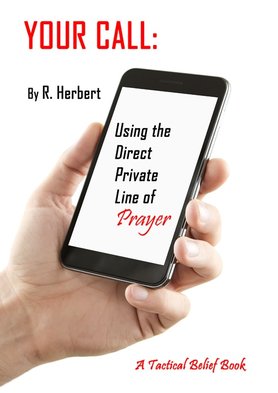
The New Testament actually gives us an insight into an important aspect of prayer that we might easily miss. See what that 80% principle is, here.
| "Faith is ... the certainty of things not seen" (Hebrews 11:1) |
|
 Several years ago we published an article on prayer that is still as valuable today as it was then. It makes a point that may transform your understanding of this subject. Not all prayer is asking for something, but a great deal of it obviously is. When we ask, do we pray mainly for our own physical and spiritual needs and concerns? It is certainly acceptable to pray for these things – we have Christ’s encouragement to do so – but that is only part of the picture we find in the words of Jesus and in the New Testament as a whole. The New Testament actually gives us an insight into an important aspect of prayer that we might easily miss. See what that 80% principle is, here. “Then Jesus said to them, “Suppose you have a friend, and you go to him at midnight and say, ‘Friend, lend me three loaves of bread; a friend of mine on a journey has come to me, and I have no food to offer him.’ And suppose the one inside answers, ‘Don’t bother me. The door is already locked, and my children and I are in bed. I can’t get up and give you anything.’ I tell you, even though he will not get up and give you the bread because of friendship, yet because of your shameless audacity he will surely get up and give you as much as you need” (Luke 11:5-8).
The parable of the Friend in Need (or the Friend at Midnight) appears in the Gospel of Luke immediately after Jesus gives his disciples the “Lord’s Prayer” and is clearly a continuation of his teaching on how to pray. Three cultural aspects help explain the details of the parable. First, in the ancient Near East, ovens were fired and bread was usually baked in the early morning hours before the heat of the day – so by nightfall there might well be no bread left in a home, and people would borrow from their neighbors if more was needed. Second, and also because of the heat of the days, it was not unusual for people to wait till evening to set out on a journey and to arrive at their destination later in the night. Finally, Near Eastern custom was such that if someone arrived at one’s home after a long journey, it would be regarded as shameful not to offer the person food. This seems to be the situation in which the man in the parable finds himself, so he goes to his friend’s house late at night to request food for his guest. The obvious lesson in the parable is that of persistence in prayer, something Jesus taught on multiple occasions, and in other parables such as that of the Persistent Widow. But perhaps we may find other lessons in this particular parable as well. For one thing, we see in the action of the friend that he was doing everything he could do himself – going to a friend’s house, even late at night, and asking tirelessly until he received a positive answer. The Greek word which is translated “boldness” or “persistence” in some translations, regarding how the man continues to ask his friend’s help, is well translated as “shameless audacity” in the NIV – it really does convey an attitude that goes beyond simple persistence to a level which might even seem audacious or rude. This, Jesus tells us, is the kind of persistence we should have in prayer — a confident boldness we also see in the story of the woman of Syrophoenicia who persisted in asking Jesus’ help till he rewarded her for exactly this attitude (Mark 7:25-30, Matthew 15:21-28 and see also Hebrews 4:16). But we should also remember a final detail of this parable: that it is not based on the friend needing bread for himself, but for someone else. So an additional lesson we can draw from this story is that we can often be the answer to someone else’s need. That is what intercessory prayer is all about, and this small parable reminds us to pray for others not only tirelessly, but also with true boldness. * * * See also the latest blog post on our Tactical Christianity website here. We are all so used to hearing people say “Amen” at the end of prayers and saying it ourselves that we seldom think about the word, but the following points may show you that there is a lot about that small word you don’t know.
1) “Amen” doesn’t just mean “may it be so.” Many people think of amen as a kind of spiritual punctuation mark – something we put at the end of prayers to mean “the prayer is over.” Those who understand the word better think of it as meaning “may it be so” and being a way of adding our agreement to what was said, but the word means much more than that and actually has a number of meanings. Amen comes from a Hebrew root which in its various forms can mean: to support, to be loyal, to be certain or sure, and even to place faith in something. At the most basic level, the word can mean simply “yes!” as we see in Paul’s statement: “For no matter how many promises God has made, they are ‘Yes’ in Christ. And so through him the ‘Amen’ is spoken by us to the glory of God” (2 Corinthians 1:20). But the central meaning of the word has to do with truth, as we will see. 2) Amen was not usually used to conclude prayers in the Bible. Although it is found many times in the Bible, its main use was to affirm praise for God (Psalm 41:13; Romans 1:25; etc.) or to confirm a blessing (Romans 15:33; etc.) – either by the speaker or the hearers. The “amen” found at the end of the Lord's Prayer in some manuscripts of the New Testament affirms the expression of praise that concludes the prayer. Perhaps because of this, over the course of the centuries it became common practice to use "amen" as the conclusion for prayers. 3) Amen is used as a characteristic of God in the Old Testament. Although the English Bible translation you use may not show it, in Isaiah 65:16 the Hebrew text speaks twice of “the God of Amen,” and this clearly uses amen as a characteristic or even a title of God. Because many translators feel this would be confusing in English, they choose to render the text as “the God of truth,” and although that is not a bad translation, it does somewhat obscure the original sense of what was written. 4) Amen is used as a characteristic of Jesus in the New Testament. Just as God is referred to as the God of Amen in the Old Testament, so in the New Testament in Revelation 3:14 “Amen" is used as a title for Jesus Christ “These are the words of the Amen, the faithful and true witness, the ruler of God's creation.” The combination of Amen with “faithful and true witness” clearly shows the connection between amen and truth. 5) Amen was used uniquely by Jesus. Jesus usually used the word amen at the beginning of his statements, and in those cases, it was sometimes translated by the Gospel writers into Greek as “truly” (Luke 4:25; 9:27; etc.). The NIV translates this in turn as “I assure you …” But a completely unique use of amen by Jesus in the New Testament is recorded by the apostle John, whose Gospel shows us that Christ frequently doubled the word at the beginning of particularly important statements. In the King James Bible this is translated “Verily, verily,” in the ESV as “truly, truly,” and in the NIV “Very truly.” The doubling of amen was not only used by Jesus, however. In the early 1960’s part of a Hebrew legal document dating from the time of Jesus was found in which an individual declares “Amen, amen, ani lo ashem” meaning “Very truly, I am innocent.” It is possible, then, that Jesus borrowed this doubled form of amen from legal language of the day. But knowing that Jesus used this expression to signify important things he wanted to stress can help us see their importance in our own study of his words. The full list of occurrences of amen being doubled in John’s Gospel is: 1:51; 3:3, 5, 11; 5:19, 24-25; 6:26, 32, 47, 53; 8:34, 51, 58; 10:1, 7; 12:24; 13:16, 20, 21, 38; 14:12; 16:20, 23; and 21:18. It is interesting that while the New Testament writers often left untranslated certain Hebrew or Aramaic words such as abba, “father,” but immediately followed the word with a translation into Greek, they invariably left “amen” untranslated in its Hebrew form. This could possibly have been because they felt the word amen was known and understood by all their readers, but it is more likely that they knew that the word represented a range of meanings and they felt it better to simply include the word and let the reader or hearer consider the possibilities. If this is the case, we can draw a lesson from the fact. That small untranslated “amen” we read in our Bibles can mean more than just “may it be so.” We can often profitably think about what it most likely means in a given context or the intended force with which the expression was used. Finally, we should remember that “amen” certainly is not just a spiritual punctuation mark or a simple exclamation – wherever we use it we should think of it as a solemn affirmation that we are giving our personal guarantee that what was said is true! s
Cultural background is often an important key to understanding the New Testament. We know that many aspects of the Jewish and Roman cultures in the time of Jesus shed light on details in the Gospels, especially. So what does that kind of information tell us about the prayer or prayer outline (Matthew 6:9-13; Luke 11:2-4) Jesus gave his disciples: the Lord’s Prayer? Perhaps the first things we notice when we look at the Lord’s Prayer compared to the prayers of the time of Christ are the many differences! Jesus prefaced his instruction on prayer by saying that the Gentiles prayed with a lot of words (Matthew 6:7-8), and that was certainly true of the Romans who ruled first century Judea. When Romans formally spoke or prayed to the Emperor, they often used all thirty or more of his titles. Jewish prayer could be extensive, too. The Jews used six titles of God in daily prayers – the main one being “God of Abraham, Isaac, and Jacob.” By contrast, Jesus taught his followers to address God simply as Father. A side note here, but another important difference, is that in the Old Testament, “father” is used a number of times of God. But it is always a descriptive – used either as a simile or a metaphor – never a term of address. The Jews prayed three times a day, often utilizing the “shema” of Deuteronomy 6:4-5 and other scriptures and a prayer structure involving eighteen benedictions or blessings consisting of (1) three blessings of praise, (2) twelve petitions, and (3) three concluding blessings of thanks. Once again, Jesus simplified prayer for his disciples, with seven simple requests. Despite these differences of approach, there are a great many similarities between the Lord’s Prayer and those of the culture of the time. Some of the introductory phrases are similar to those of contemporary Jewish prayers; both mention the kingdom of God; and the request for daily bread occurs at about the same place in the middle of both Jesus’ prayer guide and the contemporary prayers of the Jews. Nevertheless, the differences between Jesus’ prayer and those of the culture in which he lived are more noticeable than the similarities and show the truly unique aspects of Jesus’ prayer. One such distinctive aspect of the Lord’s Prayer is that of the implied responsibility that it places on the one praying regarding the petitions being made. Each petition asks for an act of God that presupposes our own participation in fulfilling the request. Petitions – implied responsibility of the petitioner Hallowed be your name – we must not dishonor it. Your kingdom come – we must work for it. Your will be done – we must strive to fulfill it. Give us this day our daily bread – we must work for it. And forgive us our debts – we must forgive others. Lead us not into temptation – we must not follow after it. But deliver us from evil – we must do what we can to escape it. The participation of the petitioner in the various requests of the Lord’s Prayer may only be implied in the wording for the prayer, but its context – at least in Matthew – clearly shows the responsibilities of the disciple in all of the areas of petition. This is perhaps the greatest difference between the Lord’s Prayer and those of the Jewish people of the time. Cultural background shows a number of clear parallels between the two approaches to prayer, but the differences are major and significant. “If any of you lacks wisdom, you should ask God, who gives generously to all without finding fault, and it will be given to you” (James 1:5).
It’s a verse we all know and love. It seems to promise unbounded wisdom and that if we just ask for it, God will generously give it to us. But is that what this verse means? Certainly, it is in God’s power to grant unbounded and universal wisdom to anyone he wishes, but does God really work that way? Put the question in human terms. If you walk into your local bank branch and tell the manager “I want a big loan, just give me money” – is the banker likely to help or will he or she ask “How much do you need and for what purpose?” What we often miss in James’ words on asking for wisdom is their context. If we look carefully at the immediately preceding verses, we see James is writing about a very specific situation. He says: “Consider it pure joy, my brothers and sisters, whenever you face trials of many kinds, because you know that the testing of your faith produces perseverance. Let perseverance finish its work so that you may be mature and complete, not lacking anything” (James 1:2-4). James’ context is one of persecution. He tells believers that trials can bring about spiritual maturity in which we do not lack anything needed to deal with such problems (vs. 4). But if we do lack wisdom – implying wisdom in dealing with matters of persecution and patience – we can ask God and he will help us. Take another example – that of the archetypal story of God granting wisdom to King Solomon. When God appeared to Solomon and offered him anything he wanted, Solomon did not simply ask for wisdom. Notice his request to God: “give your servant a discerning heart to govern your people and to distinguish between right and wrong. For who is able to govern this great people of yours?” (1 Kings 7:9). Because Solomon asked for wisdom in a specific context – to do the work of ruling Israel – God was well pleased and granted him great wisdom (1 Kings 7:12, 29-34) as well as other blessings. But we should remember that Solomon asked for the wisdom he needed in a specific situation. It is perhaps not surprising, then, that in the compositions believed to be written by Solomon, he often ties wisdom to particular contexts. Notice the wording of just one example: “Whoever obeys his command will come to no harm, and the wise heart will know the proper time and procedure” (Ecclesiastes 8:5). Here, we see wisdom relating to “proper times” and “procedures,” and in many of the proverbs of Solomon, wisdom is tied to other specific needs and circumstances. So when we consider the wider biblical context, the words of James regarding wisdom become clear. God rarely, if ever, gives unneeded gifts. If we desire wisdom, his word indicates we should not ask to be funnel fed wisdom without specific purpose. But we can humbly take our needs to God and ask for wisdom in the areas of life where we need it in order to best fulfill his will and our calling – and then, as James affirms, God will gladly give it to us. Many people think of the “Lord’s Prayer” – the guide to prayer given by Jesus to his disciples (Matthew 6:9-13, Luke 11:2-4) – as something to be recited. In this view, simply saying the words exactly as they are recorded in the scriptures constitutes what Jesus had in mind for the prayers of his followers.
However, this understanding of the “prayer” does not fit with the biblical evidence we have. If the Lord’s Prayer constitutes the prayer Jesus taught his disciples, why do we not find it repeated at any other point in the New Testament – and why are all the recorded prayers given by his disciples after this point not the Lord’s Prayer? The answer is doubtless that what we call the Lord’s Prayer was really an outline guide to the key subjects to be covered regularly in prayer. Once we realize this probability, we are able to understand many things about the prayer outline that we might otherwise miss. A key aspect in understanding the thrust and intent of the Lord’s Prayer is that not only does it record things to be said, but also – directly or indirectly – it records things we are to do. When we look at the seven petitions found within the prayer outline, we see that each one asks for God’s intervention or action in a sphere in which we are also expected to act. This is most clearly seen in the petition “forgive us our debts/sins” which specifically states “as we forgive our debtors/them that sin against us” (Matthew 6:12). We ask God’s forgiveness, understanding that it is linked to and to some degree dependent upon what we do. Although this request is the only one that directly includes a statement of our responsibility within the prayer itself, the remaining petitions can be seen to imply responsibilities in the way that Jesus refers to them elsewhere in the Sermon on the Mount or in his other teachings. This means that the petitions of the Lord’s Prayer are all balanced with responsibilities that can be paired like this: “Hallowed be your name” – we must not dishonor God’s name in our speech or lives. “Your kingdom come” – we must work for the establishment of the kingdom in our own lives and those of others. “Your will be done” - we must strive to fulfill God’s will in all aspects of our lives. “Give us this day our daily bread” - we must work for our sustenance. “Forgive us our debts” - we must forgive others if we are to be forgiven. “Lead us not into temptation” - we must actively avoid tempting situations. “Deliver us from evil” – we must do what we can to avoid or overcome evil. Balancing what we ask God to perform and what we ourselves do is not the same as attempting to bolster our faith with works. Rather, it is simply fulfilling the clear biblical injunctions that can be found on all these subjects. “Give us our daily bread,” for example, is balanced not only by the general teachings of Jesus (John 9:4, etc.), but also by the apostle Paul’s explicit statement that “The one who is unwilling to work shall not eat” (2 Thessalonians 3:10). Similarly, all the petitions of the Lord’s Prayer may be balanced with Christian teachings – positively or negatively expressed – regarding what we are to do or not do to fulfill our responsibility in each area. The principle is simple enough and is somewhat humorously summed up in the old saying that “we cannot sow our wild oats, then pray for a crop failure.” Our lives must match our prayers in each specific application. This view of the Lord’s Prayer actually develops our trust in God far more than simply reciting its petitions and then “going our own way.” Understanding that we play a role in the fulfillment of each petition helps us not only to pray for God’s action in the world, but also to pray for the specific help we need in fulfilling our own part. Ultimately, the Lord’s Prayer is not a simple list of requests that we can recite, then forget – it is a guide to asking God to fulfill his will in the area of every petition and to help us to fulfill our own part in what God intends.  In 1952, the Congress of the United States of America established a National Day of Prayer as an annual event by a joint resolution. This resolution was signed into law by President Harry Truman, who called for the nation to take time “to turn to God in prayer and meditation.” Every president over the last 62 years, regardless of political or religious affiliation, has proclaimed a National Day of Prayer which is now set by law to be observed on the first Thursday of May each year. The roots of this day of prayer may be said to go back to 1775 when, on the very eve of the U.S. War of Independence, the First Continental Congress called for a day of prayer. Today such public devotion may seem foreign to many, but the principle of approaching God in a spirit of national rededication is itself an echo of such days in biblical times. This year, the National Day of Prayer falls on Thursday, May 3. and its theme is unity. It is a great opportunity for us to both give thanks for our national blessings and to remember the spiritual problems and the needs of our nation at this time. * If you would like more information on prayer, you can download a free copy of our e-book Your Call: Using the Direct Private Line of Prayer (available in different versions to view on computer, e-reader, or phone) from our sister site here.  When the expression “a life of prayer” comes to mind, people usually think of a devout figure whose life is characterized by frequent and extended prayer. But there is another very different possible meaning that we should always remember is contained in this expression. In a very real sense our lives are part of our prayers: we pray what we live, not just what we say. Although we may not find a biblical verse that makes this statement in exactly those words, we find many scriptures that make the principle clear. For example, the apostle Paul wrote: “Therefore, I urge you, brothers and sisters … to offer your bodies as a living sacrifice, holy and pleasing to God—this is your true and proper worship” (Romans 12:1). When we remember the many biblical verses that equate prayer with sacrifice (Psalm 141:2, etc.), what Paul writes takes on even clearer meaning – that just as our prayers are given as offerings or sacrifices to God (Revelation 8:4), the sacrifice of our “bodies” – our lives – is also part of our worship. Paul urges us to make our lives just as much a pleasing offering to God as our verbal prayers. The Christian writer and preacher A. W. Tozer referred to this principle when he wrote: "We cannot pray in love and live in hate and still think we are worshiping God." Tozer’s comment is well known, but he followed it up with an analogy that is not so often quoted and which summarizes the broader principle: Let us suppose we are back in the old days of the high priest, who took incense into the [temple sanctuary] and went behind the veil and offered it there. And let us suppose that rubber—the worst-smelling thing I can think of when it burns—had been available in those days. Let us suppose that chips of rubber had been mixed with the incense, so that instead of the pure smoke of the spices filling the temple with sweet perfume, there had been the black, angry, rancid smell of rubber mixed with it. How could a priest worship God by mixing with the sweet-smelling ingredients some foul ingredient that would be a stench in the nostrils of priest and people? Tozer’s analogy is a good one, and we might well contrast it with what Paul instructs us in Ephesians: “Follow God’s example, therefore, as dearly loved children and walk in the way of love, just as Christ loved us and gave himself up for us as a fragrant offering and sacrifice to God” (Ephesians 5:1-2). Paul shows here that our walk – if it is in the way of love – is equivalent to a fragrant offering or sacrifice, just as that of Christ was. But the principle of our lives being prayers is not just an analogy that we can dismiss or overlook. The relationship between our lives and our prayer “offerings” is as important as it is direct. We see this from the beginning of the biblical record with the story of Cain whose offering was rejected by God: The Lord looked with favor on Abel and his offering, but on Cain and his offering he did not look with favor. So Cain was very angry, and his face was downcast. Then the Lord said to Cain, “Why are you angry? Why is your face downcast? If you do what is right, will you not be accepted? But if you do not do what is right, sin is crouching at your door; it desires to have you, but you must rule over it” (Genesis 4:4-7). In Cain’s case God rejected a physical offering because of his not doing right, but the New Testament makes it clear that the same applies to our verbal prayers: “We know that God does not listen to sinners. He listens to the godly person who does his will” (John 9:31). The Book of Hebrews gives a clear example of this interaction between our everyday and prayer lives: “Through Jesus, therefore, let us continually offer to God a sacrifice of praise—the fruit of lips that openly profess his name. And do not forget to do good and to share with others, for with such sacrifices God is pleased” (Hebrews 13:15-16). Our sacrifice of prayer and praise is directly linked, Hebrews says, to our walk, our behavior and our deeds. The Bible’s teaching is clear, then: our everyday life is part of our “prayer” life and God “hears” what we do just as much as what we say. It is often said that our private lives must match our public prayers, but our everyday lives must match our private prayers, too. One of the greatest ways we can improve our prayer lives is to bring our everyday lives into alignment with them. It’s a fact that gives new meaning to the old question, “How’s your prayer life?” *Download our free ebook on prayer, YOUR CALL: USING THE DIRECT PRIVATE LINE OF PRAYER here.  YOUR CALL: USING THE DIRECT PRIVATE LINE OF PRAYER By R. Herbert, Tactical Belief Books, 2017 ISBN 978-1-64007-969-4 Our latest e-Book is for new Christians and established believers alike. It takes a fresh look at what the Bible really says about prayer – about how we should pray and what we should pray. Some of the answers might surprise you, but this is a book that may transform your prayer life. It will certainly enable you to enhance your prayer starting immediately – by showing you how to more fully and effectively use the direct line that you have been given. Like all our e-Books, Your Call is completely free and available in several versions to read on any computer or e-Book reader and many smart phones. You don't need to register or give an email address – just click on the version you want and download! You can download YOUR CALL from our sister-site, TacticalChristianity.org, Here.  I was never in business, so the ways of the business world are often news to me. Take, for example, when I found out that some businesses have a direct private line to the CEO that is made available to the most important clients. Not to the rest of us, of course. We have to go through the recording with a raft of choices only to hear “There are twelve people ahead of you” then perhaps eventually be transferred a couple of times and perhaps put on hold for several minutes before we finally get an answering machine. All this to call companies with only a few thousand callers. Can you imagine what it would be like if we had to reach our Heavenly Father by phone? “There are four million, three hundred and twenty-five thousand, seven hundred and fifty-six callers ahead of you.” The truth is we all have a direct private line that is always there. It’s humbling to think that we are each, individually, important enough to Him to have a direct line to the CEO of the universe. We don’t have to wait on hold in order to get through eventually – the line we are given is direct and instant. At any time. There isn’t even a weekend plan where we have to wait to call because we are low on minutes. It’s really a wonderful thing that we so often take for granted. No downed or bad lines, no poor satellite signal, no answering machine or dropped calls – ever. We can actually reach our heavenly CEO faster than we can get through to our doctor’s office or the manager of the local grocery store. Have you ever given thanks for that? The fact that we have direct access to our Heavenly Father is truly a great gift – and it is sad that many do not understand that the access is there, but believe they can only call on God through various intercessors. Jesus’ words are clear on this, however, that although we ask in His name (John 16:23) and are only able to approach through His sacrifice (John 14:6), we do not need any intercessor, but may pray directly to the Father (John 16:26, Matthew 6:9). Another thing to remember is that our calls are always answered. Although we talk about answered prayer and unanswered prayer, I find it helps to remember that prayer is like a phone call that’s always answered. God is always there and the “phone” is always on. He may not give us what we ask for, or as quickly as we ask for it, for our own good, but we should remember the sincerely made call is always answered (Psalms 86:7, Jeremiah 33:3). Something else for which we should be constantly thankful. There’s only one catch to the direct private line package, and it’s a relatively small one. We have to use it regularly for maximum effectiveness. It’s not like that legendary “hot line” between the leaders of the US and the old Soviet Union – there to be used if circumstances become desperate enough that it is needed. Remember Paul shows we should pray in all things. But it’s not hard to do. In fact, we don’t even need a reason to call. God is always desirous to hear from us and happy to take our call. So if you haven’t done that recently, why not make the call and give thanks for your direct private line! November is the month in which a day is set aside for IDOP – the International Day of Prayer for the Persecuted Church. This year, however, circumstances have led to three different days being marked for this purpose.
Some groups will observe November 20 as IDOP this year, but as this day falls somewhat close to the American Thanksgiving holiday, at least one group has opted for November 13, and the major Christian relief organization Open Doors has set November 6 – the first Sunday in the month – as the Day of Prayer. Whichever day – or days – we may focus on the needs of our persecuted brothers and sisters around the world, the need has never been greater. In many countries in Africa and Asia, especially, millions of Christians endure continued restrictions, harassment and humiliation for their faith. They, sadly, are the fortunate ones. Millions more believers face ongoing violence with beatings, torture, and murder occurring on a daily basis at the hands of terrorist groups such as ISIS and Boko Haram, but also from mainstream followers of many non-Christian religions. Many people cannot meet or worship freely and many live their lives in constant danger and deprivation because of their faithfulness. These are the reasons why persecuted Christians deserve and need our prayers daily, and why the International Day of Prayer for the Persecuted Church focusses on the situation in a united manner. If you are not familiar with the levels of persecution that are extant in the world at the present time or want to understand more about the situation, we recommend Open Doors’ World Watch List as a good place to start. This excellent list shows the extent of the problem and provides opportunities to learn more. The website also shows other ways we can help. Once we understand the magnitude of the situation, we are better equipped to pray in a more meaningful way for those who need help. As the Apostle Paul wrote in 1 Corinthians 12:26, when one part of the Body of Christ – the Church – suffers, all parts suffer. These are not pleasant things to contemplate or to concentrate on, but if we are not suffering in our hearts and minds for our persecuted brothers and sisters (Romans 12:15), we must ask ourselves to what degree are we really part of that Body. Remembering the persecuted Church can help those in need in immeasurable, but very real, ways. Something to think about:
"Call to me and I will answer you, and will tell you great and hidden things that you have not known" (Jeremiah 33:3) is a verse often quoted in relation to Bible study. It certainly is an appropriate scripture to think about in that regard. We only understand the deeper things of God's word to the extent that he opens our mind to see them, and we do need to ask to see them. That may seem like a very basic principle, but it's always one we must remember. Yet that is not the only meaning of Jeremiah 33:3. If we look at the context of this particular verse it actually has nothing to do with study of God's word, but it is concerned with a situation in which God reminds the prophet that he will answer the prayer to understand deep or problematic aspects of life if he is asked. The context is one of the suffering the nation of Judah was experiencing as a result of its sins. God tells Jeremiah in this context: “Give thanks to the Lord Almighty, for the Lord is good; his love endures forever” (vs. 11), and we see that the understanding God promises in verse 3 has to do with that situation. God allows individuals – and sometimes nations – to suffer when they sin or as a result of the sins of others – but he promises to help us understand his purpose in this, his underlying intent and his love that lie behind the suffering. It's an essential part of learning to have faith in the God who controls all outcomes. He offers to help us understand these troubling and often disheartening aspects of life when we suffer – but we need to ask in order to hear. So don't forget Jeremiah 33:3 (chapter and verse numbers don't come any easier to remember than this one!). It's a verse we can apply in many aspects of our lives, and especially when we, or others, suffer.  “At Caesarea there was a man named Cornelius, a centurion in what was known as the Italian Regiment. He and all his family were devout and God-fearing; he gave generously to those in need and prayed to God regularly. One day at about three in the afternoon he had a vision. He distinctly saw an angel of God, who came to him and said … “Your prayers and gifts to the poor have come up as a memorial offering before God” ( Acts 10:1-4). Two aspects of Cornelius’ faithful walk before God are shown in these verses – twice over: his generous gifts to the poor and his prayer. Now we may not be able to prove it, but given the fact of Cornelius’ evident concern for those with needs, the final verse in this section of scripture seems to indicate he was praying for the poor as well as giving to the poor. If that’s the case, doubtless the poor were not all Cornelius prayed about, but the story of this centurion reminds us that prayer and giving are both important in helping others and in learning the spirit of true giving ourselves. Just as we can give without a concerned attitude, we can pray without actual giving, and in either case our concern is limited as well as our effectiveness. This is a point the apostle James makes so clearly in his Epistle: “Suppose a brother or a sister is without clothes and daily food. If one of you says to them, ‘Go in peace; keep warm and well fed,’ but does nothing about their physical needs, what good is it?" (James 2:15). It’s a vital combination: we should not speak without doing. James doesn’t suggest that our words of comfort are not important, just that they should not be alone. This applies as much in terms of our words spoken in prayers, of course, as it does in our direct relations with others. The Book of Acts shows us that Cornelius understood the importance of both speaking and doing. He reminds us of that other centurion who told Jesus “… just say the word, and my servant will be healed. For I myself am a man under authority, with soldiers under me. I tell this one, ‘Go,’ and he goes; and that one, ‘Come,’ and he comes. I say to my servant, ‘Do this,’ and he does it” (Matthew 8:8-9). Both these professional soldiers understood the relationship between speaking and doing; both understood that speaking of itself is not enough. But while the one story stresses what God does as a result of our requests, the other story stresses what we should do as a result of our requests. Words and deeds are always interrelated, in prayer as in other areas of Christian life, and the more we remember that, the more we can accomplish.  Something to think about: In 2 Thessalonians 3:1b the apostle Paul makes a number of important points in the space of only a few words. His primary point, of course, is that the spreading of the gospel message involves prayer just as much as it involves preaching. The second half of what he says in this verse shows us why this is the case. Paul shows that our prayer for the gospel should include the request that it spread rapidly. But the Greek word treché translated "rapidly" means literally to "run" and connotes not just speed, but also running unimpeded. The apostle may have had in mind Psalm 147:15, "He sends his command to the earth; his word runs swiftly." Next, Paul shows that we must pray that the gospel be honored – meaning not only that it be honored despite negative perceptions (such as, in Paul's day, the perception of many of the Jews that the gospel was heresy and of many of the Greeks that it was foolishness), but also that those who hear the word will honor it by accepting it and living by it in their lives (Acts 13:48). Preaching, Paul reminds us, is never enough of itself, and our prayer should be that the word of God is honored as well as heard.  Does God's perfect knowledge of all outcomes of a situation mean that what He wills cannot be changed, that it is useless to ask God to change His mind? “I the Lord do not change…” (Malachi 3:6) Correctly understood, Malachi 3:6 is one of the most encouraging verses in the Bible. God’s love, forgiveness, patience, mercy, and other qualities are just not going to change. We can find great relief in that fact. God will work with us tomorrow just as He did yesterday and does today. Incorrectly understood, Malachi 3:6 can limit us. We can discourage ourselves by thinking that God will never change His mind once he has determined something – so our prayers otherwise are futile and useless. This is especially true in areas where it looks as though God has allowed something to happen to us or to others that does not change for the better despite our prayers. In situations like that, is it possible to change God’s mind? And if God is all knowing and has perfect wisdom, why should we consider even trying to ask God to change a decision He has made? Many situations recorded in the Bible show that God is willing to change His mind. We will look at only one example in the Old Testament and one in the New Testament. The first example is well known: in the Genesis account of the destruction of Sodom and Gomorrah (Genesis 19), we see that although God did destroy those cities and had clearly decided to do so (Genesis 18:17-32), He nevertheless relented in at least sparing Lot and his family as a result of Abraham’s persistent intercession (see our article on Abraham’s request here). The second example is less frequently remembered, but the New Testament account of the Syrophoencian woman who pleaded with Christ to heal her daughter (Matthew 15:21-28, Mark 7:24-30) is a parallel. Jesus made it clear to the woman that he was not sent to the Gentiles and that he would not answer her pleas. Yet when the woman persisted, he relented and essentially made an exception to the rule he himself had explained regarding his not helping the Gentiles (see our article on the Syrophoenician woman’s faith here). These examples point up something we should always remember. The fact that God is all-knowing and all-wise doesn’t mean a decision He makes is the only wise decision possible in a given circumstance. The truth is, by virtue of the fact that God is all-knowing and all-powerful, He can look at a situation and adjust things to make another outcome work just as well if He knows it will still be for the best. I remember reading, many years ago, a short science-fiction story ("The Game of Blood and Dust" by Roger Zelazny) in which two unimaginably powerful alien beings played out a game of chess-like strategy on Earth by adjusting history through injecting the slightest little changes – the death of a great potential leader here, the support of a scientific genius somewhere else – until the whole of history was affected to the desired outcome. The story illustrated in an imaginative way how even the smallest changes could alter the way things work out. God obviously has the power to do exactly that kind of changing, and asking God to change His mind by considering other outcomes is not disrespectful as long as we are willing to accept His answer - it just means we have a healthy understanding of how all-knowing and all-powerful God is. That is perhaps why we read that: “… Jesus told his disciples a parable to show them that they should always pray and not give up” (Luke 18:1).  We all remember the story of the teacher of the law who asked Jesus, “Who is my Neighbor?” This was the question that prompted Jesus to reply with the Parable of the Good Samaritan – showing that even our enemies are neighbors when it comes to the law of God. But what if the teacher had asked the question in a slightly different way, saying, “Who is my Friend?” Could the answer to that question also impact our understanding of the Way of Christianity? We don’t have any indication in the New Testament of that question being asked of Jesus, but we do have Jesus’ answer to it, nevertheless. In his Gospel, Matthew tells the story of Jesus’ betrayal in the Garden of Gethsemane. Judas Iscariot, the disciple turned traitor, had led a group of soldiers and other armed men to where he knew Christ would be in order to betray him for a cash reward. As Judas approached Jesus in the dark of night and greeted him with a kiss in order to identify him to those who were to arrest him, Matthew records Jesus’ surprising words: “ ‘Do what you came for, friend.’ Then the men stepped forward, seized Jesus and arrested him” (Matthew 26:50). Think about this. Jesus was not one to soften the truth. He was the one who called the Pharisees “whitened sepulchers” and a “brood of vipers” – to their faces. But at the very moment of his betrayal , Jesus did not call Judas all the things we probably would have done. He did not call Judas “Traitor!” “Enemy!” “Back-Stabber!” – he did not even call him “False Friend!” Amazingly, he just called him “friend.” Now if we want to get technical, the word the Bible uses to record what Jesus called Judas was not philos, the Greek word usually translated “friend” and meaning “dear” in the sense of a close friend. It uses the word hetairos meaning “friend” in the sense of a comrade, one who is a friend without necessarily having any affectionate relationship. But he did call Judas by a word that means “friend” in the general sense (Matthew also uses the word in this sense in Matthew 20:13 and Matthew 22:12). How do we apply his example? The Old Testament gives us some clues. Hebrew has a word, merea, which is very similar in meaning to the Greek hetairos – it also means friend in the sense of companion or comrade and it is found in Job’s words: “He who withholds kindness from a friend forsakes the fear of the Almighty” (Job 6:14). It is the same word that is used to tell us that after Job prayed for his “friends” (the individuals who had been haranguing him), God forgave them (Job 42:10). So if righteous Job prayed for the “friends” who mistreated him, and Christ could even call Judas “friend” as he betrayed him, can we learn a lesson from this? When we pray for our enemies (Matthew 5:44), do we pray grudgingly, with reservations, or do we pray for them as we would for a friend?  Every Christian experiences answered prayer. Every Christian experiences unanswered prayer. It’s easy to appreciate the former and then to move on, but unanswered prayer sticks with us: the illness that persists, the job opening that doesn’t come, the ongoing difficulties we all face and may have prayed about fervently. We see this situation in the apostle Paul’s admission regarding a problem he prayed about unsuccessfully: “Three times I pleaded with the Lord to take it away from me” (2 Cor. 12:8). Apparently Paul’s prayers were unanswered in this case, just as ours are sometimes, too. But there are reasons why our petitions are sometimes not answered - or don't seem to be; and sometimes we can change that situation. This week we reproduce a past article on this subject from our sister site, TacticalChristianity.org. It is one of the most-read articles on that site and one that fits in well here, so we provide it for our LivingWithFaith readers and hope that it proves helpful for you also. You can read "When Prayer is Unanswered" here.  Tucked away in a list of King David’s priestly and governmental officials in 1 Chronicles we find a reference to “Hushai the Arkite [who] was the king's friend” (1 Chronicles 27:33b). This man appears in the story of David’s disloyal son Absolom. When Absolom rebelled against David, the king had Hushai infiltrate the opposition (2 Kings 15:32-37), and Hushai’s timely warning when Absolom plotted to kill David saved the king’s life at this time (2 Kings 17:1-15). Notice two things here. First the title given to Hushei - “king’s friend” – is also used of Zabud son of Nathan – a priest and adviser to King Solomon (1 Kings 4:5). Although the NIV translates this man’s title “advisor,” it is the same expression “king’s friend” used of Hushai and is translated so by the KJV, ESV, and other translations. In fact, the term “king’s friend” occurs at several other places in the Old Testament, and although it is often translated in the plural as “the king’s friends” (e.g., 2 Samuel 3:8), the Hebrew is in the singular and it is clearly the same title. So who or what was the “king’s friend”? The title was given to certain individuals in the royal courts of ancient Canaan – and later Judah and Israel – to designate an advisor of especial closeness to the king. As we see in the case of Hushai, this person was truly a confidant of the king – even regarding private family matters. But the role of the “King’s friend” extended in several directions, and the “Kings friend” might be involved in the preparations for the king’s marriage, for example, or in introducing people into an audience with the king. It is common in Christian circles to think of prayer as an “audience with the King,” of course, and this analogy ties into that of the king’s friend. We remember that Abraham was called “the friend of God” (2 Chronicles 20: 7, Isaiah 41: 8), and in the New Testament we have Christ’s words spoken to his disciples on the last evening of his life: “You are my friends if you do what I command you. No longer do I call you servants, for the servant does not know what his master is doing; but I have called you friends” (John 15:14). So even if we do not feel we could presume to put ourselves in the place of Abraham as a friend of God, the words of Jesus plainly show that if we are obedient to him, he has placed us in that role. How does this tie in to the concept of the “king’s friend”? When we think of Jesus’ words that we are his “friends,” it’s easy to think of friendship in modern terms – our friends are people with whom we enjoy casual everyday friendship. Jesus may well have meant to include the spirit of such everyday friendship in what he said, but we should also remember the more formal aspects of friendship in the ancient world – especially that of the “king’s friend.” Remember that one of the roles of “king’s friend” was doubtless introductory – taking people before the king and introducing them in order to discuss problems and issues of royal concern. If we regard prayer as an “audience with the King,” perhaps we can think of each audience we have as not only being for our own needs and those of family and friends, but also as an opportunity to introduce someone else who has a particular need, by name. Naturally, in God’s case, he already knows the person and is aware of the need, but that is what intercessory prayer is all about (1 Timothy 2:1). Ancient kings frequently took the advice and counsel of their court “friend” – and we can humbly bring the cases of others into audience with the same confidence that God will listen to His friends, also. Doing this in prayer can help us to focus on the needs of others as individuals. It’s one of the things friends are for. It’s one of the things a “King's friend” is for.  For many atheists and agnostics, the idea of a God who encourages or demands praise and worship seems selfishly motivated and self-centered. It is presumed that the divine command for worship is the equivalent of the actions of humans whose egos cannot get enough reinforcement. But the Bible does clearly teach the fact that God encourages and even commands worship, and His servants do offer praise and worship to Him continually – so why is this? Our article "Why Do We Need To Worship?" examines this question and shows the clear biblical reasons why we need to worship.  "There are two kinds of people in the world: Those who believe there are two kinds of people in the world and those who don't." – Robert Benchley, American Humorist. Benchley’s wry comment touches on the truth that most of us do see life in terms of duality: hot and cold, old and young, tired and rested, hungry and full. It’s an attitude that naturally spills into our spiritual lives where we may think in terms of good and evil, saved and unsaved, love and hate – and in prayer – answered and not answered. I have heard of Christians who are firm believers in the power of prayer who keep a record of their prayers, marking down when they feel their requests are answered or remain unanswered. That may help people remember the many prayers that clearly do get answered in life, but the approach can also hinder our full perception of the power of prayer. When we presume that prayer is either answered or unanswered, we limit ourselves from seeing other possibilities and may even cut ourselves off from a confidence that comes from seeing beyond the black-white dichotomy. Instead of thinking of prayer as just answered or unanswered, it is often more profitable to think in terms of three answers – all of which are positive: “Yes!” “Yes, but not yet!” or “I have something better in mind!” Sometimes prayers are answered immediately, sometimes we have to wait to see the positive answer, and other times the answer takes an entirely different form from what we presumed it might be, but the answer is clearly better than what we had asked for. In fact, a prayer can be answered in all of these ways. Think for example of the prayer of Hezekiah, king of Judah. 2 Kings 19 tells us that when Jerusalem was surrounded by an overpowering Assyrian force, God heard Hezekiah’s prayer and defeated the enemy. That answer was a resounding “Yes!,” and from our perspective the answer was virtually immediate, though God’s help actually came later that night, so from Hezekiah’s perspective, for a number of hours, it may have seemed like a “Not Yet!” answer. In fact, the answer to Hezekiah’s prayer may also be an example of “I have something better in mind!” The king simply prayed for Jerusalem to be delivered from the enemy army (2 Kings 19:19), but he may well have presumed his own army would have to fight to gain the victory. As it was, 2 Kings tells us that God took care of the problem His way, using His power, and Hezekiah’s army did not even have to fight. So, perhaps that is what Jesus meant when he said “Whatsoever you ask the Father in my name He will give it to you” (John 16:23). Remember that Jesus was speaking to his disciples, and not necessarily to everyone when he said that, and we do have to qualify to claim his promise (see our full article “When Prayer is Unanswered”). But if we are doing our part we can be confident in a positive answer whether the answer is immediate, given later, or perhaps different to what we expected. Serious loss or continuing problems may be hard to understand as positive answers, but they can be. The answer to believing prayer really isn’t an either/or – it’s a situation in which the best answer is always given – whether immediately, at the best time, or in the form of something better in the long term than what we asked.  Why did Abraham stop at ten? You remember the story in Genesis 18:16-33: The Lord appeared to Abraham and told him that He planned to destroy the cities of Sodom and Gomorrah because of their evil. But Abraham boldly pleaded with the Lord for the cities and for any righteous people who might be living in them: “Then Abraham … said ‘Will you sweep away the righteous with the wicked? What if there are fifty righteous people in the city? Will you really sweep it away and not spare the place for the sake of the fifty righteous people in it? Far be it from you to do such a thing—to kill the righteous with the wicked, treating the righteous and the wicked alike. Far be it from you! Will not the Judge of all the earth do right?’” (Genesis 18:23-25). You remember what happens next. The Lord agreed that for the sake of fifty innocent people he would not destroy the cities. Abraham obviously knew how bad those cities were because he then begins to lower the number of people for whom God might spare the cities. He asks if God would spare the cities for the sake of 45, then 40, then 30, then 20, then 10 people. In each case God agrees that He would spare the cities for those smaller numbers. Then Abraham stops! Many readers of the Bible have wondered why Abraham stopped at 10 people, and some have even written that the Patriarch “ran out of steam” as it were – that he lacked faith to continue to plead for fewer than ten people. Others have thought that perhaps Abraham thought that if there were fewer than ten righteous people, perhaps there was no excuse for those cities. This kind of speculation forgets an important detail in the story. Notice that immediately after Abraham pleaded for ten God answered: “‘For the sake of ten, I will not destroy it.’ When the Lord had finished speaking with Abraham, he left, and Abraham returned home” (Genesis 18:32-33). Notice that it was God who ended the conversation – before Abraham could plead any more. Given the pattern he had utilized, it is likely that Abraham might next have pleaded for the sake of five people, but God knew that there were fewer than five righteous individuals in the two cities and He chose to spare those very few - the family of Lot (Genesis 19) – and to destroy the cities of sin. There are a great number of things we can learn from this story. Not only does the episode show obvious things such as the seriousness of uncontrolled sin and its potential for judgment, but we see much regarding the mercy of God and the effect of even a few upright people in protecting communities from judgment. We see in this story God’s willingness for His people to pray for those who are in dire danger – no matter what their moral state – and perhaps we see the desire of God to look for and to see the compassion of his servant Abraham in this situation. And remember that Abraham did not plead that the righteous would have opportunity to vacate the cities, or to be miraculously protected from the destruction – he clearly was pleading for the cities and their inhabitants as well as any righteous citizens. God doubtless knew that Abraham would have continued to plead for those cities if even fewer than ten righteous people were to be found in them, but knowing His own purpose God ended the conversation when Abraham got as far as ten. Nevertheless, it’s something we might ask ourselves: would we have gone as far as Abraham? At what point would we have stopped asking for mercy on others?  In 1952, the Congress of the United States of America established a National Day of Prayer as an annual event by a joint resolution. This resolution was signed into law by President Harry Truman, who called for the nation to take time “to turn to God in prayer and meditation.” Every president over the last 62 years, regardless of political or religious affiliation, has proclaimed a National Day of Prayer which is now set by law to be observed on the first Thursday of May (today) each year. The roots of this day of prayer may be said to go back to 1775 when, on the very eve of the US War of Independence, the First Continental Congress called for a day of prayer. Today such public devotion may seem foreign to many, but the principle of approaching God in a spirit of national rededication is itself an echo of such days in biblical times. The National Day of Prayer is a great opportunity for us to give thanks and to remember the spiritual problems and needs of our nation. |
BLOGFor a smart browser-bookmark showing new blog postings, click on the RSS Feed icon.
Author :Unless otherwise stated, blog posts are written by R. Herbert, Ph.D., who writes for a number of Christian venues – including our sister site: TacticalChristianity.org Categories :
All
Archives :
July 2024
Community :
|